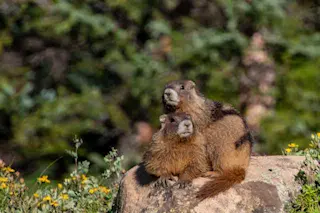Psychologists know that childhood trauma, or the experience of harmful or adverse events, can have lasting repercussions on the health and well-being of people well into adulthood. But while the consequences of early adversity have been well-researched in humans, people aren’t the only ones who can experience adversity.
If you have a rescue dog, you probably have witnessed how the abuse or neglect it may have experienced earlier in life now influence its behavior – these pets tend to be more skittish or reactive. Wild animals also experience adversity. Although their negative experiences are easy to dismiss as part of life in the wild, they still have lifelong repercussions – just like traumatic events in people and pets.
As behavioral ecologists, we are interested in how adverse experiences early in life can affect animals’ behavior, including the kinds of decisions they make and the way they interact with the world ...














